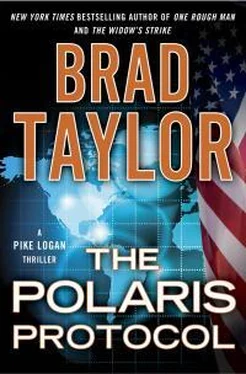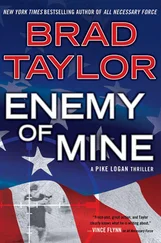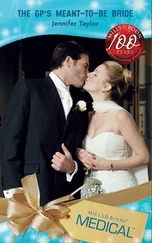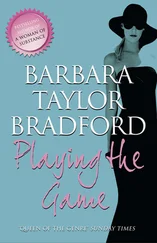He woke up his younger brother and they gathered the water containers—old milk jugs, gallon jars, and a battered plastic bucket—then descended the stairs to the street below.
Since the beginning of the uprising in Syria the brothers’ lives had become hard. Living in Palmyra, in the center of the country, the environment was a challenge, but now with the fighting, it had become downright hostile. Four months ago insurgents had set off a car bomb in front of the minister of intelligence’s headquarters building. They’d managed to kill seven of the dreaded security forces, but the explosion within the close confines of the cramped town had shattered the livelihoods of many more. Abdul hated the violence and dreaded the thought of real firepower coming to bear.
The village had once been known as a major tourist pathway. Built on an oasis in the middle of the Syrian desert, it had been a Roman center for trade. Called Tadmor by the locals, the sheltered town had erupted in 2011 with protests against President Assad. Unfortunately for the inhabitants, Palmyra had something else besides relics that the government desired to protect. Something worth much more to them than a few musty stone arches.
Protests here were treated differently than the initial outbursts elsewhere. Here they were crushed with ruthless efficiency. The soldiers patrolling the streets knew nobody was watching this desolate desert town, but their hostility was driven by more than the simple absence of press. After the first protest and the forceful regime response, the people realized that the soldiers feared more than just losing the town. They feared losing what they’d been charged with protecting.
Abdul knew none of this, of course. All he understood was that they no longer had running water, and if he wished his family to drink today, he needed to collect enough before the sun rose. Before the soldiers woke and began scanning for targets.
He had no idea that their paltry little weapons were nothing compared to what was on its final approach to his location. No idea that his entire world was held hostage by a radio signal weak enough to be broken by a clap of thunder.
73
The sicario debated whether to clean up the mess or just leave it as is. He decided to leave it. Peter Scarborough hadn’t changed his story at all, and the sicario had wasted precious time making sure. He wiped his knife on Peter’s jacket, staring into the man’s lifeless eyes, the neck wound gaping open, like a second mouth under the one with the tongue lolling out.
He hadn’t died easy. After the sicario’s mistake in letting Booth escape with his lie, he had wanted to make sure with Peter. Leave no stone unturned. Peter had given him an answer at the mere threat of violence, but that hadn’t been good enough. The sicario had left the soles of his feet at the far end of the bathtub, strips of flesh looking remarkably like thick-cut bacon from the grocery store. Fatty lengths of meat that were now curled in a pile. It hadn’t been pleasant—for Peter anyway—but at least the sicario was sure.
According to him, Arthur Booth had called from a bar named Blondie’s about an hour ago, and he was probably still there. The longer the sicario waited, the greater the chance Booth would leave. He closed his knife and stood, studying a map of Colorado Springs.
Peter lived in a small brick rental house just off Platte Avenue on the east side of town, in an area that was probably the place to be in 1950 but now had seen time erode its façade. Most of the houses were small, and none had been built after 1970. Blondie’s was a mile or two to the west, in the small downtown area of Colorado Springs. A two-story bar in the renovated part of town only a couple of blocks from his hotel.
The sicario rubbed a smudge of blood from Peter’s finger off the map, left when he’d pointed out the location. He tossed a towel on the body and walked out of the bathroom.
Opening the front door, he stood for a moment, glancing up and down the street and seeing nothing but leaves blowing in the shade. It was so different from his life in Ciudad Juárez. Trees and sidewalks. Children playing. No graffiti. No trash. The American journalist had been right. Nobody in this world had any comprehension of men like him. No comprehension of how protected and insulated they were.
They still assumed that there was a cause and effect in life, never understanding the meaning of the fox in the henhouse. They truly thought that doing good would beget good, just because of the action—and in turn that doing evil would beget evil. It was completely alien to him, and he wondered yet again if he’d missed out on some greater truth.
He’d slit Peter’s throat from ear to ear, and even while he’d bled out the sicario had seen Peter didn’t believe it would happen. Didn’t understand how it could happen. This after his feet had been peeled like a grape.
The sicario had done the work, halfway studying his response, and was amazed. He’d killed many, many men in Mexico, and when the time came, they were always resigned, understanding that death was knocking on their door and accepting it. Peter had begged until the last moment, even after the torture applied against him. After he’d screamed out the answer for the hundredth time. Believing he could alter the outcome.
Strange.
The sicario walked out the front door to his rental car and drove away, not bothering to check around him like he would have in Juárez. There was no reason to look for the hunter here, because there were no hunters here. He was unique, like a predator that had been inadvertently packed in a crate and shipped across the ocean, arriving in a new land looking for food.
His confidence was a mistake. Had he spent half of a second looking, he would have seen another predator. One who was his equal.
*
I pulled into an alley behind Blondie’s, calling Knuckles on the radio. I’d left Creed at the apartment to find out what else he could about the hackers Booth had been in contact with, then had alerted the rest of my team, telling them to move to the bar and prepare for assault.
A block off of Tejon Street, the ribbon of pavement I was on led through a large pay-for-parking area behind the strip of bars running down the middle of downtown Colorado Springs. Full of college kids and business professionals out for a good time, the area posed a significant risk to surgical operations.
Knuckles came back. “We’re out front. No parking available except for a handicapped spot. I’m assuming the Taskforce will cover the ticket.”
I said, “Don’t worry about that. You got the computer?”
“Yeah. Hacking cell couldn’t do anything with it. Clock’s still ticking. What do you want to do?”
Which was the big question. The bar was a two-story affair full of people. Booth knew us all on sight and would probably run when we closed in, which would mean a nasty little fight in a public area. We might get bouncers on us, then have to take them out, causing someone to call 911, which would mean police flooding the place.
All I needed was about two minutes and Booth’s thumb. But the repercussions might be significant.
I said, “Stage out front. When I call, we enter from both sides. Decoy and I will come in from the back. Koko will lock down our exit. You come in from the front. Leave Blood locking down that exit. But don’t do anything until I get clearance. Calling Kurt now.”
He said, “Roger. This is going to be great fun. I hope the prisons here are better than in Thailand.”
I said, “Yeah, me too, since I won’t be available to break our asses out. Stand by.”
I dialed, getting Kurt immediately.
“Sir, we’re staged to go in, but it’s a bad, bad place for a takedown. I just want to make sure I’m covered for domestic operations.”
Читать дальше












